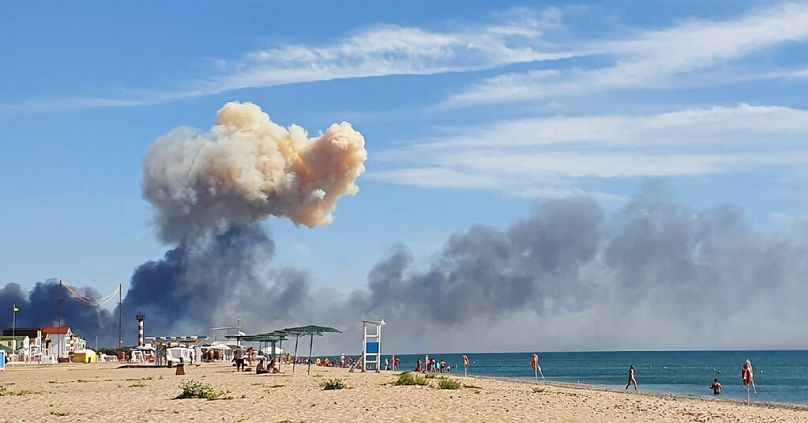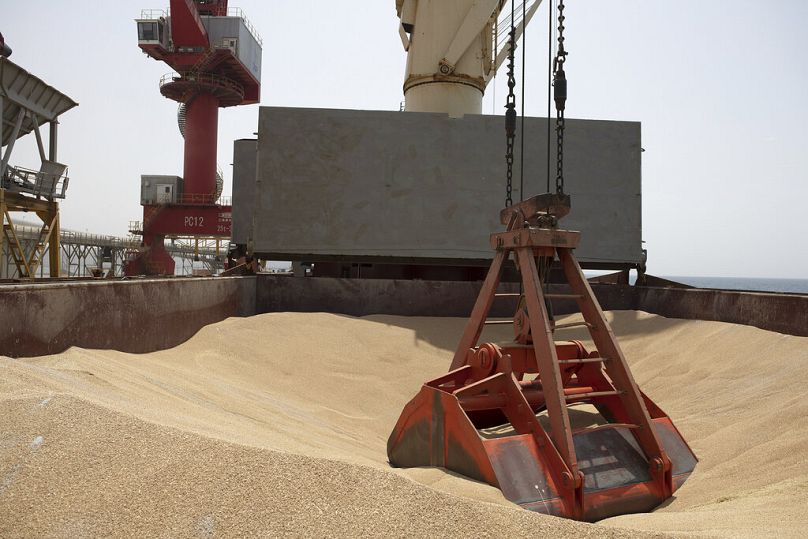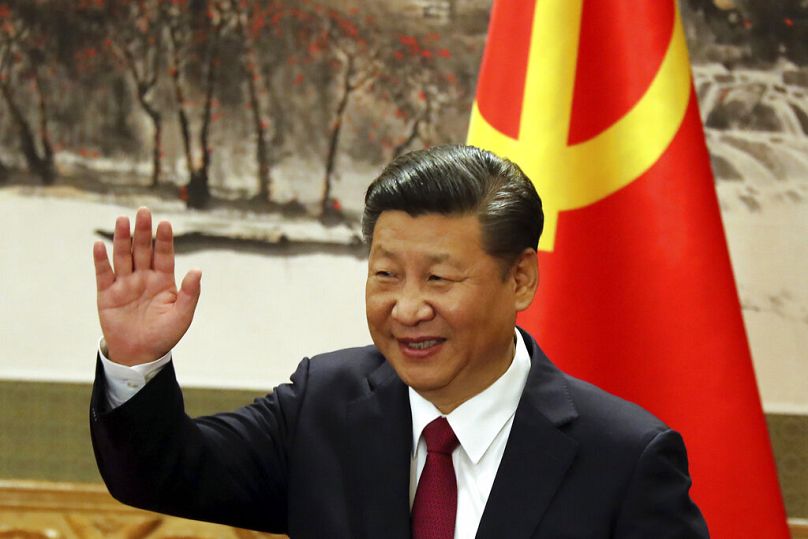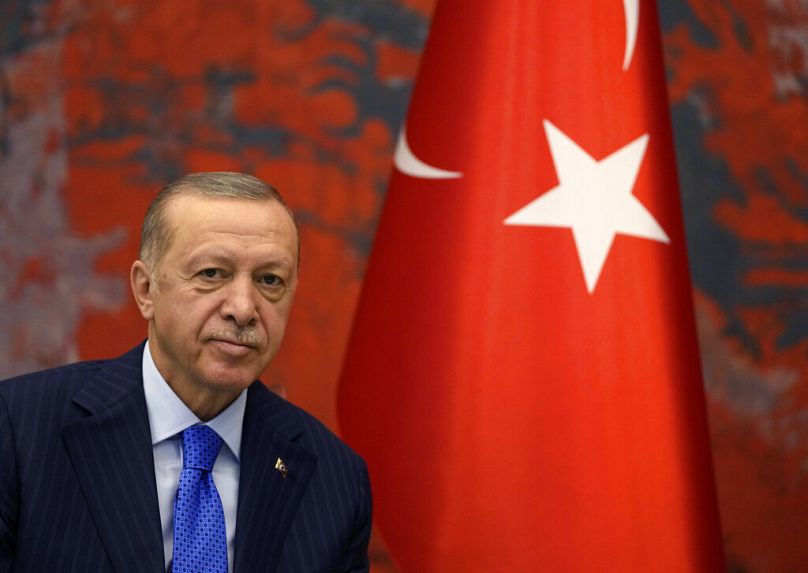Here are the latest stories you need to know from Ukraine and Russia on Wednesday 7 September 2022.
Shelling continues at Zaporizhzhia plant
Russia resumed shelling near Ukraine’s Zaporizhzhia nuclear power plant, a day after the UN's nuclear energy watchdog pressed for the warring sides to carve out a safe zone there to prevent a catastrophe.
The city of Nikopol, on the opposite bank of the Dnieper River from Europe’s largest nuclear plant, was fired on with rockets and heavy artillery, according to the regional governor.
“There are fires, blackouts and other things at the plant that force us to prepare the local population for the consequences of the nuclear danger,” the official said. In recent days local residents have received rations of iodine pills to protect them in the event of a radiation leak.
The fighting going on around the plant has caused international alarm, with the head of the International Atomic Energy Agency, Rafael Grossi, warning the UN Security Council that "something very, very catastrophic could take place" at Zaporizhzhia.
The IAEA urged Russia and Ukraine to establish a “nuclear safety and security protection zone” around the plant.
The fear is that the fighting could trigger a disaster on the scale of the Chernobyl disaster in Ukraine in 1986.
Ukraine claims responsibility for Crimea strikes
Ukraine's top military chief claimed responsibility on Wednesday for a series of strikes on Russian air bases on the annexed peninsula of Crimea, including one that caused devastation at the Saky military facility last month.
In an article co-authored by lawmaker Mykhailo Zabrodskyi and published on state news agency Ukrinform, Valeriy Zaluzhnyi, the Ukrainian army's commander in chief, said the strikes had been carried out by missiles or rockets, without elaborating.
Ukraine has until now only hinted at its involvement in the Crimea strikes, with one senior official anonymously telling Reuters that the air base explosions were the work of Ukrainian saboteurs on the ground.
Writing about Ukraine's response to what the op-ed said was Moscow's strategy of "distancing" the war from Russian citizens, Zaluzhnyi and Zaborodskyi wrote of "the successful efforts of the Armed Forces of Ukraine to physically transfer hostilities to... Crimea".
We are talking about a series of successful rocket strikes against the enemy's Crimean air bases, first of all, the Saky airfield," the article said. A footnote clarified that the Saky attack was a "combined strike" that took place on 9 August, and took ten Russian warplanes "out of action".
Vladimir Putin says Ukraine grain going to rich countries, not poor
Russian President Vladimir Putin said on Wednesday that most of Ukraine's grain exports were going to European countries and not to poor countries, which he said posed a risk of a "humanitarian disaster".
These assertions are not fully confirmed by figures provided to AFP by the coordination centre in Turkey, according to which only 36% of Ukrainian grain went to EU countries.
"Almost all the grain exported from Ukraine is sent not to developing countries and poorer countries, but to EU countries," Putin told an economic forum in Vladivostok in Russia's Far East region.
"What we are seeing is a deception (...), a crude and reckless attitude towards these partners for whom all this was supposed to be done," he said in front of many Asian economic and political leaders.
The Russian president denounced a "colonialist" attitude on the part of Western countries, and in particular the EU, which "think first of (their) own skin, (their) own interests". "They don't care," he said.
"Look at the count: 80 ships, and only two to developing countries", or "only 3%", Mr Putin blasted in his speech, saying he had "spoken with a European leader" about the issue "a month ago". "But the amount of grain sent to developing countries is still not increasing".
"This could lead to an unprecedented humanitarian catastrophe," he warned in a speech lasting more than half an hour. "Perhaps we should think about how to limit exports of grain and other food products through this route," he continued.
According to data received on Wednesday from the Joint Coordination Centre (JCC) in Istanbul, responsible for supervising the agreement, 100 ships have left the Ukrainian ports of Odessa, Chornomorsk and Pivdenny since the beginning of August, carrying 2,334,310 tonnes of grain and other agricultural products.
The main countries of destination were Turkey (20%), Spain (15%), Egypt (10%), China (7%) and Italy (7%). European countries represent 36% of the total, and African countries 17%.
In total, "30% of the cargoes went to low- and lower-middle-income countries", said the CCC.
Russian and Chinese leaders to meet at Uzbekistan summit
Russian President Vladimir Putin and Chinese President Xi Jinping plan to meet next week in Uzbekistan, a Russian official said on Wednesday, announcing a summit that could signal another step in warming ties between two powers that are increasingly facing off against the West.
The meeting at the Shanghai Cooperation Organization — a political, economic and security forum that China and Russia dominate — comes at delicate times for both leaders.
Putin is dealing with the economic and political fallout of his war in Ukraine that has left Russia more isolated. Xi, meanwhile, is also facing a slowing economy as he seeks a third five-year term as Communist Party leader. While he's expected to secure it, that would represent a break with precedent. Both have seen their countries' relations with the West deteriorate.
The Russian ambassador to China, Andrei Denisov, told reporters that the two would meet at the organization's summit in the Uzbek city of Samarkand on 15 and 16 September.
The visit to Uzbekistan, if it goes ahead, would be part of Xi’s first foreign trip in 2½ years. Xi has only left mainland China once — to make a one-day visit to the semi-autonomous city of Hong Kong — since the start of the COVID-19 outbreak in late 2019.
Moscow and Beijing have increasingly aligned their foreign policies to oppose liberal democratic forces in Asia, Europe and beyond, making a stand for authoritarian rule with tight borders and little regard for free speech, minority rights or opposition politics.
The Russian military held sweeping military drills that ended on Wednesday in the country’s east that involved forces from China, another show of increasingly close ties between the two.
France warns about dangers of Russian disinformation efforts
The French government is calling for "collective vigilance" in the face of Russian propaganda on the war in Ukraine, which it says is finding "relays of opinion" in France, notably via "interventions, sometimes by politicians, sometimes by 'experts'".
"We are seeing the emergence of interventions, sometimes by politicians, sometimes by 'experts', on television platforms, which are beginning to make the Russian word credible on our territory and sometimes even question the reality of the sordid events taking place in Ukraine," a spokesperson said, following Wednesday's meeting of the French Cabinet.
After Russian President Vladimir Putin said that sanctions against Moscow "threaten the whole world", the French government spokesman asked: "If the sanctions that Europe is imposing on Russia were doing more harm to Europe than to Russia, do you think a leader like Vladimir Putin would say so?
He also said that "we should not become (...) the mouthpieces of what is clearly the over-exploitation of freedom of expression, which is alive and well in France unlike Russia, to serve Russian propaganda", rejecting "the exercise that would consist of constantly commenting on or denying the words of someone who expects nothing more from us". "He will be able to count on opinion leaders, particularly via social networks," he said.
"My appeal to collective vigilance is that we must not give an inch on our values and the fight we are waging for freedom," he concluded.
Turkey's President Erdogan says West has been 'provocative' towards Russia
Western countries are guilty of "provocation" towards Russia, Turkish President Recep Tayyip Erdogan said on Wednesday in Belgrade.
"I can say very openly that I do not find the current attitude of the West (...) to be the right one. The West is pursuing a policy based on provocation", declared the Turkish head of state during a press conference with his Serbian counterpart Aleksandar Vucic, in response to a question on the energy crisis in Europe.
"As long as you try to wage such a provocative war, you cannot achieve the desired results," he added.
"We, Turkey, have always maintained a policy of balance between Russia and Ukraine."
Although Turkey provided Kyiv with military drones, Ankara refused to join Western sanctions against Russia after the outbreak of its offensive in Ukraine .
The president had already blamed the energy crisis in Europe on Tuesday on the sanctions imposed on Russia, which is a popular Russian talking point.
"Europe is reaping what it has sown. Europe's attitude towards Mr Putin and the sanctions have led him, whether we like it or not, to say: 'If you do this, I will do this", he said in Ankara before departing for his three-day Balkan tour.















